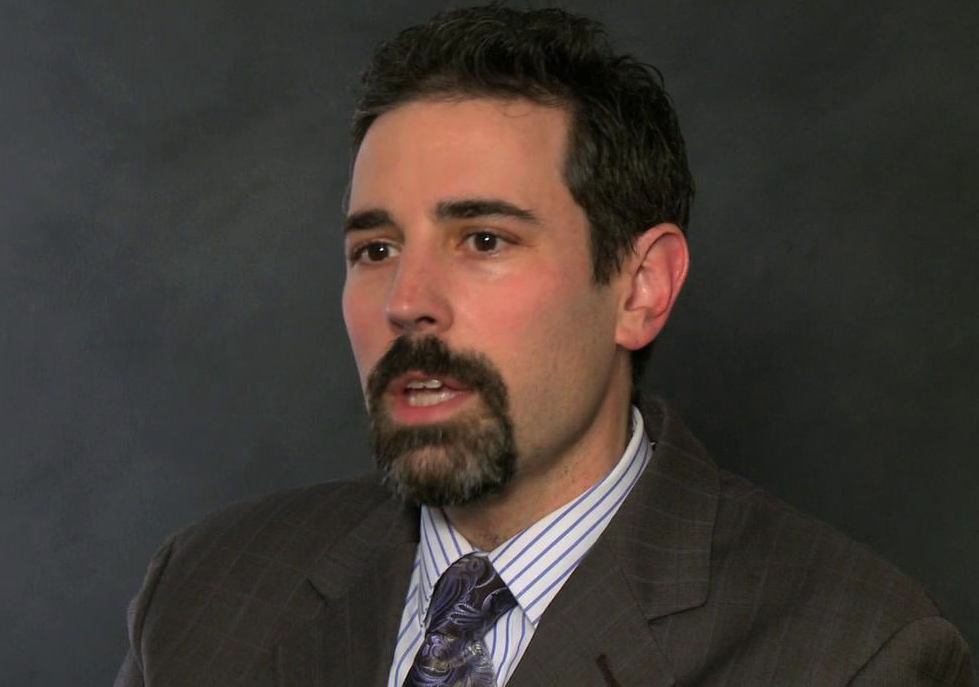By Adagbo ONOJA
There is something that is not so smart in pronouncing any particular International Relations/Political Science academic the most iconic in a country such as the United States which is saturated with cutting edge academics of that discipline. It is a full house from whichever tendency or analytical camp one takes the listing, be it the star neo-realists such as Stephen Walt in Harvard, John Mearsheimer in Chicago, liberal institutionalists such as Robert Keohane in Princeton or the radical guard, starting with John Agnew in UCLA, Gerald O’Tuathail in Virginia Polytechnic Institute, (their brand of geography is a perfect fit here) to Richard Ashley in Arizona State University then, Robert Vitalis at the University of Pennsylvania, again just to mention a few out of so many truly great scholars.
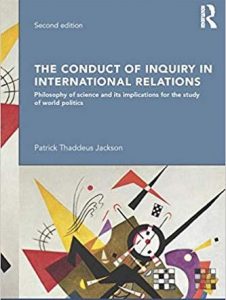
Cover of the second edition released in 2016
But it is an inescapable rating when dealing with The Conduct of Inquiry in International Relations: Philosophy of Science and Its Implications for the Study of World Politics and, by implication, Professor Patrick Thaddeus Jackson, aka PTJ, its fast talking, electrifying author. It is actually such that there is enormous difficulty in keeping a review of the book from slipping now and then into a personality profile of the author. No book in recent years, including Samuel Huntington’s over-cited The Clash of Civilisations, is enacting both a specific discipline and an entire knowledge area on a scale of this book. While there are those who out rightly reject Huntington’s premise and conclusion, this is not so much the case by those who have responded to Jackson’s book. Even University of Aberystwyt’s Emeritus Professor, Hidemi Suganmi who questioned the philosophical foundation argument Jackson offered for his classificatory schema still praises what he calls Jackson’s philosophical vigilance against neopositivism.
That is a 2013 essay but even then, Colin Wight, the University of Sydney scholar of critical realism whose 2019 essay, “Bringing the Outside In: The Limits of Theoretical Fragmentation and Pluralism in IR Theory” threw a a charge of ‘anything goes’ pluralism on Jackson’s standpoint did no further damage beyond that. It must be admitted though that the essay in question wasn’t on the book except that if Wight’s 1999 essay, “Meta Campbell: The Epistemological Problems of Perspectivism” is a guide, he might be the one to offer a consolidated critique of Jackson. But that hasn’t happened yet.
There is thus a paradoxical dimension to the book in that anything could still come out of American Political Science with such a global agenda setting power in spite of nearly a century of anti-American sentiments in the discipline. This is not only in Africa where scholars such as the late Claude Ake took it up frontally in his Social Science as Imperialism but also in Europe where Steve Smith and Ole Weaver have led the conversation. Interestingly, both the Africans and the Europeans were coming behind their American counterparts who had also taken note of the resentment as for Stanley Hoffmann to pen his essay, “An American Social Science: International Relations” in 1977. Before him, Gabriel Almond, the veteran’s veteran, had been responding to the dimension of this relating to suspicious link between American Political Science and the CIA, (see his short 1965 piece titled “The New Intelligence Requirements”).
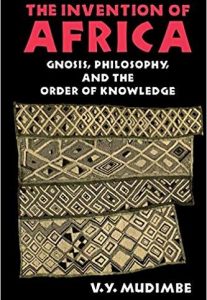
A major African voice in current global conversation
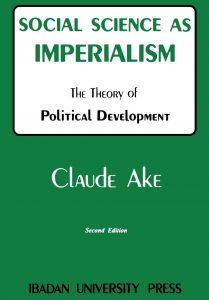
An African critique of Political Science made-in-the USA
So, there is something of a paradox in Professor Jackson’s amazing accomplishment that now sees him sitting comfortably in the front row of icons in terms of one philosophical, conceptual, theoretical or methodological coup de grace or another shortly before and ever after the end of the Cold War. It would be a long list but those that readily come to mind would include Hans Morgenthau; Kenneth Waltz; Edward Said; Robert Cox; Stuart Hall; Richard Ashley; Nicolas Onuf; Alexander Wendt; Samuel Huntington; Gerald O’Tuathail; Ken Booth; Ole Weaver; Carol Cohn; Nina Tannewald; Norman Fairclough; Teun van Dijk; Valentin Mudimbe; Ernesto Laclau and Chantal Mouffe; Hayden White; David Campbell; James Der Derian; Benno Teschke; John Hobson and Colin Wight. It is trite to say this is not exhaustive because it cannot be.
So, what is the magic of American Political Science/IRs that, in spite of everything, the strongest critique of Realism, (Ashley); the ‘Perestroika Movement’ for methodological pluralism and now the Patrick Thaddeus Jackson phenomenon are all coming from America? Having taken a PhD from Columbia University and having taught only in American universities, Jackson is American Political Science through and through.
Paradox or no paradox, Jackson has intervened in an age-old tussle within the social science family in a manner that leaves all ‘conflict parties’ winners: from Robert Dahl; Kenneth Waltz, the inventor of what Jackson now wants to be known and called Analyticism in the field to Gabriel Almond, who worried so much about methodological schools, camps, sects and tables in Political Science very early in the 1990s. In fact, Jackson could have titled his book ‘Another Epitaph for a Monument to a Successful Protest”, an abridged version of Robert Dahl’s 1961 essay “The Behavioural Approach in Political Science: Epitaph for a Monument to a Successful Protest”.
In other words, ‘Another Epitaph …” would equally have been an appropriate title for The Conduct of Inquiry in International Relations: Philosophy of Science and Its Implications for the Study of World Politics because, by 2011 when the first edition came out, it was into the ashes of a turbulence that had been raging in the field specifically and the (social) sciences space generally. Rationalists and their methodological practices of proof confronted the challenge from methodological dissidents insisting on pluralism. Facing down the dissidents in his presidential address to the APSA Conference in 1988, Prof Robert Keohane contrasted what he chose to call the ‘reflective’ school to the neopositivists and the neoliberal institutionalists in terms of delineating a research program and without which he was sure they would remain marginal and even invisible within the field. This was even as he acknowledged and even listed its ‘ring leaders’ as well as pointed out how so much the school has to contribute.
But, in 2001, a group of political scientists upped the ante through a revolt for methodological pluralism that became known as the ‘Perestroika Movement’, obviously taking a cue from what Gorbachev’s name for what he thought he was doing in the defunct USSR in the late 1980s. The revolt coordinated via email turned out a major shot.
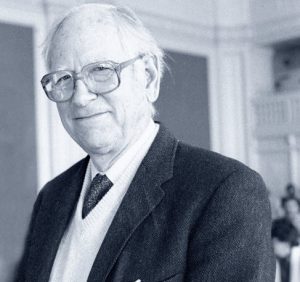
The late Robert Dahl, a leading figure in the construction of Political Science in the US
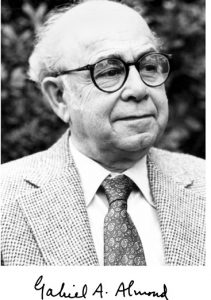 That is the brief background to the heavyweight championship over “the science question in IR” that Prof Jackson has, for now, brought to a close by arguing in the book in question that it is nothing but a disciplining move for anyone to declare any criteria as definitive of science other than that science is “the communicative practice of scientists”. That is, scientificity does not lie in any unitary narrative or process but in internal validity or the rules of inference to which a particular community of practice subscribes and which makes its knowledge claims intelligible to its Others. In thus arguing for an ‘Island of pluralism’, Jackson offers recognition to contending practices irrespective of whether they framed the problematique in terms of correlation between X and Y or not. He ends up delineating four research homesteads viz Neopositivism; Critical Realism; Analyticism and Reflexivity, each of which is connected to a philosophical jump-off point or the two broad wagers he itemised .
That is the brief background to the heavyweight championship over “the science question in IR” that Prof Jackson has, for now, brought to a close by arguing in the book in question that it is nothing but a disciplining move for anyone to declare any criteria as definitive of science other than that science is “the communicative practice of scientists”. That is, scientificity does not lie in any unitary narrative or process but in internal validity or the rules of inference to which a particular community of practice subscribes and which makes its knowledge claims intelligible to its Others. In thus arguing for an ‘Island of pluralism’, Jackson offers recognition to contending practices irrespective of whether they framed the problematique in terms of correlation between X and Y or not. He ends up delineating four research homesteads viz Neopositivism; Critical Realism; Analyticism and Reflexivity, each of which is connected to a philosophical jump-off point or the two broad wagers he itemised .
It can thus be argued that it is in challenging unitary sense of science and thereby decentering science, (or is it positivism) that the intellectual marksmanship registers. What can be inferred from that is as the positivist narrative of science provided the epistemological framework for the resistance to pre-capitalist ruling class, so also is the pluralistic narrative of science providing the basis for stability for the postmodern order and its diversity/difference. In other words, the genius of Jackson’s intervention is the legacy of recognising this in the tussle in methodology in recent years and compacting them into something for everyone by re framing science.
Of course, the acclaim is overwhelming. The editorial review of the First edition is replete with superlatives: breathtakingly original and rigorous analysis; impressive; re-assuring depth; sophisticated; significant contribution; convincing; incisive; provocative claims, engaging and so on.
Emeritus Prof, Nicolas Onuf, a pioneer of Constructivism states very frankly that Jackson has written a rare book that he wished he had written himself. But there is a way in which Peter Katzenstein at Cornell University provided the grandest scoring. An excerpt is inescapable: ‘In this vigorously argued, incisive and important book P.T. Jackson liberates us from the misplaced polarity between “hard, scientific” and “soft, interpretive” approaches that has bedeviled international relations scholarship for half a century….Neo-positivist, reflexivist, critical realist and analytical stances can now engage in ecumenical dialogue rather than shouting matches or with silent scorn. If you are accustomed to worship only in your favorite chapel, here is an invitation to visit a magnificent cathedral. Graduate field seminars in international relations now have access to a first-rate text’.
How long his judgment will last before someone identifies a gap in the argument is anybody’s guess but, for now, he is on the global spotlight due to all image breakers already listed in this piece.

The regulator in Nigeria
Both Jackson’s book and his scholarship are reasons why a country such as Nigeria or countries with self-understanding in terms of destiny to fulfill must be keen about what is going on. As broken as Nigeria, it is still not totally down.
The first point in this regard has already been mentioned. It is the power/knowledge nexus or its reversal: knowledge/power. On PTJ and the other members of the community of well groomed scholars who, perforce, act as rule writers for the American State, lies American primacy, whether in the dangerous neoconservative formation or the paradoxically peace promoting (neo) Realists or the rising axis of reflexivists and their emancipatory scholarship. This is the general point and it needs no further elaboration for those who have read and/or accept Steve Smith’s notion of academics as singers of their world into being.
As a noble international actor, a permanent force for peace on a regional and global scale since independence in 1960, Nigeria needs to replicate the American experience of knowledge and power. However, it cannot do so without reforming the (university) education in Nigeria to where universities can produce scholars who can drive Nigeria’s discursive power. Meanwhile, no successful reform there would be possible without restructuring the content of university education around theoretical traditions in methodological homesteads put on the table by PTJ.
Right now, that is not the case. As Jackson himself would admit, this is not peculiar to Nigeria but what he might not know is how bad it is. It is already so bad that, in late 2018, four of the top 15 political scientists in Nigeria lamented openly that undergraduates are concocting research reports on a disturbing scale. No serious person will blame these students who have been told about survey, questionnaire, elite interview and more but not the epistemological assumptions justifying them. So, there are all manner of graduates with First Class degrees but without good grasp of the metatheoretical underpinning of knowledge claims. It is worse than unleashing badly trained doctors on patients because these products are the journalists, military commanders, professionals and political leaders of tomorrow.
This tragedy has not always been the case in Nigeria, the proof for which can be found in how orality was pushed into a standard research technique by the (University of) Ibadan School of History over six decades back. There is a solid, further proof in one of the many debates at the Ahmadu Bello University, Zaria in those days, “The Responsibility of Political and Other Sciences in Nigeria”. The university system was on course, far ahead of its Others. Then those for whom these indicators of progress have no meaning came to power and the rest, as they say, is now history.
But, by the authority of the Holy book, there is time for everything: time for a country to die a little and time for it to overcome internal and external intrigues. Reforming the universities constitutes the starting point for the return of Nigeria in spite of the bleakness of the clouds. Reforming the methodological component of the academic program of the universities is the starting point in reforming the universities. That explains the link between PTJ, his iconic self through his intervention in methodological scholarship and as they all relate to the remaking of Nigeria, with particular reference to curing the hiatus between citizenry and the democratic imagination in Nigeria.
Nobody is saying PTJ has got it all settled but that he has provided a framework which, together with existing and yet to be delivered criticisms of it, can serve as a working document for the restructuring of knowledge in the Nigerian space. Whether the agential factor for such a far reaching reform in Nigerian (university) education exists in the country now is a different question!
ONOJA, the author, teaches Political Science at Veritas University, Abuja in Nigeria

